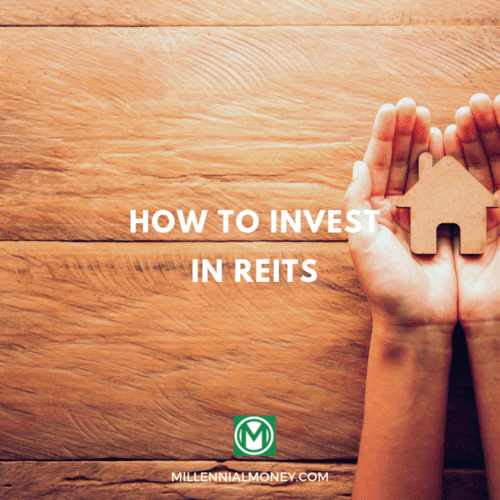Are you feeling the call to become a small business owner and are considering investing in a laundromat business?
Or maybe you have a couple of other businesses going already, and you’re wondering whether it’s the right move to bid on an old laundromat in your neighborhood.
With so many variables to consider, this is not an easy decision to make. This article covers the basics of buying and owning a laundromat and explains how to determine if it’s a smart choice for your career.
How to Buy a Laundromat & Make Money
Here are some valuable tips for buying a laundromat and maximizing the return on your investment:
- Start with a financial assessment
- Decide if you want a partner
- Consider just buying the building
- Hire a sharp estate agent
- Consult with multiple lenders
- Have a ‘why’ before investing
- Look into REITs
1. Start with a financial assessment
Starting a laundromat is a lot more complicated than buying a basic rental property. There is a lot more risk and many other factors that determine profitability.
Before moving forward, you first have to assess whether you’re in the right spot to start your own business. Ensure your debt is at a minimum and that you have a healthy amount of cash saved up for a down payment and to make upgrades.
If you don’t have the money to cover yourself during a downturn or to pay for essential repairs, you probably aren’t in the best position to start a new business.
2. Decide if you want a partner
It may be a good idea to go in with a partner. At the very least, you should consult with someone who has experience running a laundromat.
The upsides of going in with an experienced partner are that they can help you avoid making costly mistakes, and they can split the costs of the initial investment and ongoing expenses.
3. Consider just buying the building
Another option to explore is buying a building with an existing laundromat and leasing it to another business.
For example, there may be a local laundromat or a chain looking to franchise in your area. This organization will have more resources, including money, staffing, and possibly even a customer base that they can bring in.
This option can also be a lot less stressful. You can sit back and collect monthly rent payments, leaving the renters to deal with day-to-day operations, equipment upgrades, and maintenance.
4. Hire a sharp estate agent
One of the best ways to gain the upper hand in real estate is to hire an estate agent who is a bulldog negotiator.
Your real estate agent should be sharp as a tack and highly knowledgeable about the market where you’re looking. This person should also be a buying specialist.
Keep in mind that not all agents specialize in acquisitions. Some specialize in renting, while others close deals. That said, if you already plan to lease out the laundromat to another business, you may want to have a separate real estate agent on standby to help you lease it once you officially become the owner.
5. Consult with multiple lenders
Chances are you’re going to need a mortgage loan to buy a laundromat. Don’t take the first loan that comes your way.
Get the offer in writing and shop around with various lenders to see if someone can beat the price. You may be able to get a better loan offering from a competing lender.
Also, make sure to consult with your real estate agent during this process and see what they have to say. Most likely, they will have a network of lenders that they can refer you to.
6. Have a ‘why’ before investing
Spend some time thinking about why you want to own a laundromat. Owning and operating a laundromat can be exhausting work, and profitability is not guaranteed.
Do you want to physically be on the premise each day, helping customers and overseeing the daily operations? Or do you plan to hire someone else to handle that for you?
Either way, make sure you have a passion for the business and that it’s something you actually want to pursue. If you are purely considering buying a laundromat to earn a profit, remember that many other types of less-risky investments exist.
7. Look into REITs
Buying a laundromat can be an incredibly complex and expensive ordeal. You may find as you go through the process that it’s simply not worth it — even if it promises a healthy monthly cash flow.
If that’s the case, you may want to look into investing in real estate investment trusts (REITs), which are for-profit organizations that own and operate real estate portfolios. You can purchase REITs through a brokerage, just like you would stocks.
The main benefit of investing in REITs is that you get to own real estate without dealing with all of the upfront costs or ongoing maintenance.
Is a Laundromat Business a Profitable Investment?
According to the Coin Laundry Association, laundromats are typically worth from $50,000 to $1 million and can generate a cash flow from $15,000 to $300,000 annually.
Sure, that sounds awesome on paper. But if this were easy to achieve, you would probably know many more laundromat owners.
To determine if buying a laundromat is going to be a good return on investment for you, here are some of the top factors to consider.
Building condition
All commercial real estate, including laundromats, are categorized by their overall quality and are typically labeled as either a class A, class B, or class C property.
Class A buildings are typically newer and located in the best part of town. Most new laundromats are class A. As you might expect, you can expect to pay more for a class A property. However, the property should require fewer repairs and should attract more customers due to the prime location, which may offset the higher upfront price tag.
Class B buildings are kind of like middle-of-the-road property. They are often in areas that aren’t quite as in demand but are still in decent operating condition.
Class C buildings are a further step down and are often in undesirable locations and need extensive repairs.
Why is the building condition important?
If you want to attract clientele, you need to have a laundromat that isn’t run down or dirty. People aren’t going to want to bring their clothes to a decrepit facility.
That’s not to say that you should ignore class B or class C opportunities. It all depends on the price and future value of the property.
For example, if you get a good deal on a class B laundromat, you may be able to make capital upgrades and bump up its status to class A. If you decide to take this route, having a firm understanding of your repair costs is critical to success.
If you don’t want to deal with the work and costs involved with upgrading the premises, you’re probably better off going with a class A property. This way, you’ll have a turn-key investment that can start bringing in revenue from day one.
Class C properties are most likely going to be tougher to turn a profit on. Laundromats require a steady flow of customers to be profitable, which you are unlikely to get if the property is in a run-down area or needs a ton of renovations.
Unless you get a fantastic deal or get lucky with the location (i.e., if the neighborhood becomes desirable in 10 years), I don’t foresee class C laundromats being a good move. However, your real estate advisor would be the best person to answer that question.
Commercial laundry equipment quality
If you’re buying your own washers and dryers, you must professionally inspect these for quality, just as closely as you inspect the building.
Consider bringing in an independent third-party consultant to analyze the equipment and provide an overview of their condition and longevity. The last thing you want to do is invest in equipment that will be obsolete or discontinued by the manufacturer in a few years, forcing you to spend thousands more on new ones.
If you have the cash, you may opt to go with brand new machines at the start. However, this is not necessarily a requirement and something you can think about as time goes on. If the existing equipment is well-functioning, then you are probably going to be in good shape.
Location
The location should be a top consideration when buying a laundromat. People don’t like traveling far from home to do laundry, so it pays to find a facility that’s near apartment complexes and residential housing.
At the same time, you should look into the town’s demographics to get a sense of demand. Seek out market data that indicates how many people in the area already have washers and dryers and whether they would be apt to use your facility.
When conducting this market research, you should also scope out the competition and figure out who you are going up against. In an ideal world, your laundromat will go in an area with high demand and limited competition. But that’s easier said than done.
If competition already exists, try to get a sense of whether customers are happy and how well the business is doing. You may find that customers are unhappy with their current options. Or maybe the existing competitors are already very busy, which indicates that some of this demand might immediately spill over into your facility.
Another option to consider is speaking with your local officials or zoning board. These people typically have a good understanding of the local community and can give you an opinion about whether or not a laundromat is a viable business plan. You can also learn about your likelihood of gaining approval for the business and if there are any zoning or legal obstacles that might arise.
Unexpected costs to consider when buying a laundromat
Buying a laundromat can be immensely profitable if you get a place that’s in excellent condition in a premium location.
Yet, laundromats come with some hefty expenses too. Here are some of the most common costs to consider when buying a laundromat.
Machine maintenance
Walk into any laundromat and notice how many machines are out of order at a given time. Your machines are inevitably going to break, requiring expensive repairs. You may wind up spending thousands of dollars annually on maintenance and repairs just to keep your machines up and running.
Supplies
You’ll also need to purchase supplies for your laundromat. For example, this may include detergent, folding tables, vending machines, tokens for machines, laundry bags, laundry scales, payment systems, and possibly coin machines.
Facility maintenance
There is also facility maintenance to consider, which needs to be a top priority. If you want to attract guests and get good ratings, you’ll need to keep the sidewalks clear, the floors squeaky clean, and the bathrooms and machines spotless. You’ll either have to perform this maintenance yourself or pay someone to take care of it or you.
Fees
All businesses have unavoidable administrative fees, including taxes, insurance, payroll, advertising, and marketing costs. You’ll also have to cut monthly mortgage checks, which will most likely be your largest expense.
Utilities
Laundromats consume a significant amount of water and electricity. The machines can get very hot, too, so you’ll most likely need an industrial-strength HVAC system to keep the place cool. These utility costs can add up quickly, so make sure to factor those into your monthly operating budget.
Frequently Asked Questions
What is the Coin Laundry Association?
The Coin Laundry Association is a leading trade association and not-for-profit dedicated to helping owners and investors in the self-service laundry industry. They provide a range of resources and offer membership opportunities.
Do I need vending machines in my laundromat?
Every penny counts when operating a laundromat, and offering a vending machine could be a great way to earn some extra income from your hungry customers as they wait for their clothes to dry.
Just keep in mind that vending machines also consume a significant amount of power, especially if you have multiple machines. They also require maintenance, and you may have to sign a contract with a local distributor.
If you really want to be hands-on, you may have more luck buying your own vending machine or selling snacks over the counter.
Do washing machines require a lot of maintenance?
Yes. Washing machines need to be continuously maintained, cleaned, and disinfected. Otherwise, you’ll run into complaints from customers and possibly even penalties from your local health department. This maintenance costs money, and it’s an unavoidable cost that you can’t skimp on.
Can laundromat owners get rich?
Yes. Any business owner can potentially get rich by making smart investment choices. You can also lose money.
One thing you could do is get the facility to a point where it’s highly profitable and then leverage your equity to open a second location. Eventually, you could get to a point where you have multiple laundromats under your name, all raking in profits.
Is a laundromat a good business model?
A laundromat that’s appropriately managed can be a great business model. However, a laundromat can also be extremely expensive. It all depends on the decisions you make and the team that you have around you.
Is owning a laundromat a full-time job?
If you decide to take a hands-on approach and manage everything yourself, owning a laundromat can be more than a full-time job. It can eat up all of your free time and become an exhausting endeavor. However, if you hire others to work for you and outsource operations wherever you can, you can buy back some time and make it a more of a passive income source. Though, of course, every hire you make eats into your profits.
Ultimately, your ownership experience depends on your budget, your willingness to be on-premises, and if you can find reliable people to keep operations running smoothly.
Do all laundromats offer dry cleaning and folding?
Some laundromats offer dry cleaning and fold services, while others are purely self-service. Laundromat owners often provide these services because they can charge more money. However, they also require factoring in extra costs.
Should You Invest in a Laundromat?
Think hard before starting a coin laundry business. There’s a lot more to consider than just clean clothes. You’ll need a robust business plan and a great team to help run your facility. It’s also essential to do your due diligence to avoid running into a financial disaster.
The bottom line is that laundromats can be a tremendously profitable business model, but they can be a risky investment, too.
If you purchase a place in a desirable location, you maintain that place in top-notch condition, and you have a steady stream of happy customers, you might just find yourself on the highway to laundry riches. Good luck!





No comments yet. Add your own